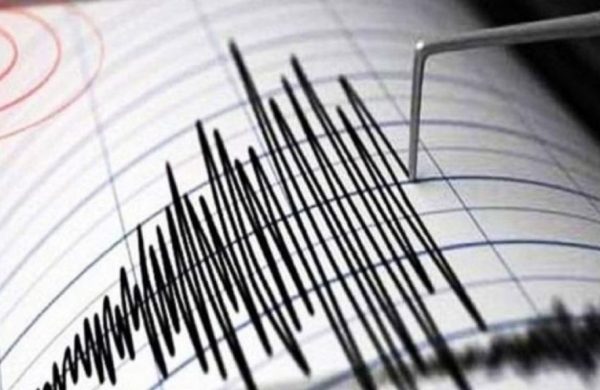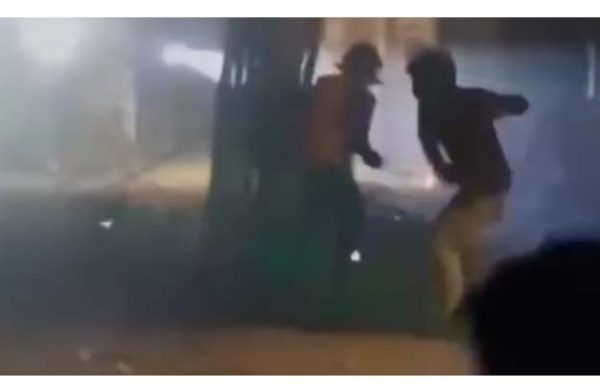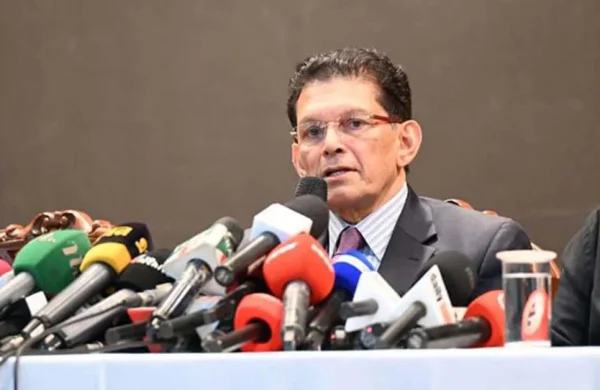Dhaka’s Chemical Time Bomb
- Update Time : Monday, November 3, 2025

—H M Nazmul Alam—
Dhaka is living on borrowed time. In its teeming neighbourhoods, barrels of corrosive acids, flammable thinners and reactive solvents sit quietly beside sleeping families and schoolyards. Every few months, a flash of fire turns that quiet into horror. The city mourns, headlines rage, committees are formed, and then—silence. This rhythm of catastrophe has become a way of life. Yet beneath that routine lies a danger far greater than anything the city has yet faced.
Fifteen years have passed since the Nimtoli inferno of 2010 that killed 124 people. The tragedy was supposed to mark the beginning of a safer Dhaka—a city where no family would again be burnt alive because of a neighbour’s warehouse. The Bangladesh Small and Cottage Industries Corporation (BSCIC) was tasked with moving all chemical and plastic businesses out of residential areas. Two relocation projects were launched—one in Sirajdikhan, Munshiganj, for chemical traders, and another for plastic factories, initially in Keraniganj. Deadlines were set, budgets approved, plots promised. Yet in 2025, these projects remain unfinished dreams. The Chemical Industrial Park, costing Tk1,454.8 crore, has completed about 73% of its work, while the Plastic Industrial Park has achieved barely 12%. Both have missed multiple deadlines, and the final completion now drifts towards 2027.
Meanwhile, fires continue to erupt. Seventeen workers died in the Rupnagar factory blaze this October; three firefighters perished in Tongi last month. The pattern repeats: a chemical store catches fire, a nearby building ignites, lives are lost, and authorities promise to “look into it.” Dhaka’s fire problem is no longer accidental—it is systemic.
The Department of Explosives records 731 licensed chemical businesses in Dhaka division, authorised to store 54 inflammable items. The real number is far higher. Hundreds more operate illegally, unregistered and uninspected, hiding behind fake business categories or exploiting regulatory loopholes. Certain chemicals do not require a license because they are not “technically inflammable,” though they can become deadly when mixed with others. This loophole alone could one day turn a neighbourhood into a crater. That image may sound extreme—until one remembers Beirut.
On 4 August 2020, a warehouse at the Port of Beirut caught fire. Within minutes, a series of explosions culminated in one of the largest non-nuclear blasts in human history. Beirut’s tragedy was not born in a single moment of misfortune—it was cultivated through years of bureaucratic neglect. Dhaka is walking a disturbingly similar path. Here too, hazardous substances lie in hidden corners of the city. Here too, bureaucrats know the risks, but the urgency is missing. If Beirut’s explosion was a lesson in what happens when stored chemicals outlast political will, Dhaka should not wait to learn it the hard way.
Urban planners and fire experts have long warned that the dense housing, narrow alleys and unregulated warehouses make Dhaka one of the most fire-prone cities in Asia. Old Dhaka, where many buildings double as homes and factories, is a labyrinth of chemical drums, plastic granules, and gas cylinders stacked beside stoves. In such environments, a small electrical spark can unleash a chain reaction. The fire service has documented multiple incidents where a minor ignition turned into a multi-block inferno within minutes.
The public health implications are equally severe. Many of these chemicals emit toxic vapours even at room temperature, contaminating indoor air and groundwater. Residents inhale low doses of industrial solvents every day without realising it. Over time, the results manifest as respiratory illnesses, skin disease, and long-term neurological damage. What fires destroy in minutes, pollution does slowly—but just as mercilessly.
The government’s interim measures have proven inadequate. The Bangladesh Chemical Industries Corporation (BCIC) built 54 temporary warehouses in Shayampur at a cost of Tk62 crore, but rents were so high that most small traders refused to move. Without affordable alternatives, illegal storage continues to thrive. Meanwhile, the promised permanent relocation sites remain construction zones. Every new deadline is followed by another extension, another excuse.
Dhaka’s crisis, at its core, is not logistical but philosophical. The city has been built on a dangerous compromise between commerce and safety.
The Department of Explosives issues licenses; the city corporations control trade permissions; the fire service enforces safety codes; the environment ministry regulates pollution; and BSCIC manages relocation. Each institution operates in isolation. The result is a perfect bureaucratic storm—everyone is in charge, yet no one is accountable.
History shows that complacency with chemicals always ends in tragedy. In 1947, a ship carrying 2,000 tonnes of ammonium nitrate exploded in Texas, killing 581 people. In Tianjin, China, in 2015, an illegal chemical warehouse blast killed 173. Dhaka’s officials often claim that “our situation is different.” It is not. The ingredients of catastrophe are all here: densely packed residential areas, widespread illegal storage, overlapping jurisdictions, and delayed relocation. The only missing element is a spark.
To avert such a future, several actions are non-negotiable. First, the relocation projects must be fast-tracked under direct prime ministerial oversight, with fixed funding and transparent timelines. No new extension should be permitted without public accountability. Second, affordable relocation packages must be created for small traders to eliminate the economic incentive for illegal storage. Third, zoning laws must be rewritten to clearly separate industrial, commercial, and residential uses. “Mixed-use” cannot continue to be an excuse for hazard. Fourth, all chemical storage must be digitally registered, with inter-agency monitoring and real-time updates shared between the fire service, city corporations and environmental authorities.
Equally important is a shift in public perception. Fires in Dhaka are often accepted as inevitable, almost natural. They are not. They are the result of deliberate neglect. Civil society, media, and local communities must refuse to let these tragedies fade into the background noise of urban life.
The Beirut explosion was a mirror held up to every unsafe city that mistakes delay for safety. That blast was triggered by something as mundane as welding sparks near stored chemicals. Dhaka’s warehouses are full of similar possibilities waiting for a moment’s carelessness. One errant flame, one careless fix, one overlooked warning—those are all it takes.
—————————————————————————–
The writer is an academic, journalist and political analyst. He can be reached at [email protected]


















